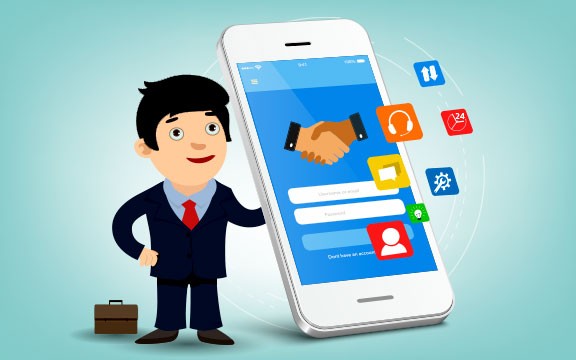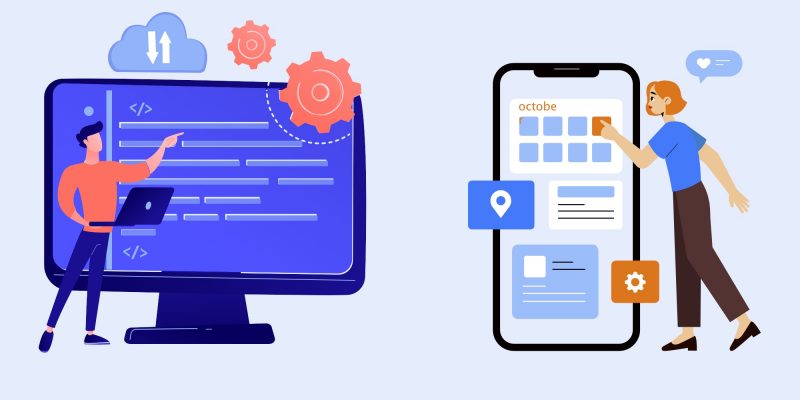


In a market with millions of apps, standing out and capturing the attention of your target audience demands a strategic approach. A successful app launch hinges on delivering relevant value to users and answering the crucial question, “What’s in it for me?” Here’s a clear, logical, and easy-to-follow guide to help you navigate the process of launching your app effectively:
Conduct thorough market research to understand your target audience’s needs, preferences, and pain points. Analyze competitor apps to identify market gaps your app can fill. This insight will guide your app’s features, design, and overall marketing strategy. For example, if you’re developing a fitness app, find out what useful features are missing in popular apps and aim to provide those.
Develop detailed user personas based on your research. Knowing your audience’s demographics, behavior patterns, and preferences allows you to tailor your app’s messaging, features, and user experience to resonate with them. For instance, if your target audience is young professionals, emphasize time-efficient features and modern design.
Choose a pricing strategy that reflects your app’s value and aligns with your target market’s willingness to pay. Options include free, freemium, subscription-based, or one-time purchase models. For a meditation app, a freemium model with basic free features and premium paid content might be effective.
Set clear, measurable goals such as the number of downloads, active users, revenue targets, or user engagement metrics. This helps you track performance and make informed decisions. For example, aim for 10,000 downloads and 5,000 active users within the first month.

Decide which app stores or platforms to launch on, such as the Apple App Store, Google Play Store, or others like Huawei AppGallery. Each platform has specific requirements, so ensure your app meets their criteria.
Build anticipation and generate buzz before the official launch. Use social media, email marketing, press releases, and influencer partnerships to create awareness and attract early adopters.
Consider a soft launch in select markets or with a limited audience. This allows you to test performance, gather feedback, and address issues before the official launch.
Optimize your app store listings with relevant keywords, compelling descriptions, high-quality visuals, and positive user reviews. This improves visibility and discoverability in app store search results.
Create a comprehensive marketing plan incorporating social media advertising, content marketing, app store features, influencer endorsements, and public relations.
Use targeted campaigns on platforms like Facebook and Instagram to drive downloads.
Produce engaging content like blog posts, videos, or podcasts related to your app’s niche. Share valuable insights, tips, or user stories that resonate with your target audience and position your app as a solution to their needs.
Submit your app for consideration to be featured in app store collections, editor’s picks, or themed showcases. Being featured can significantly boost your app’s visibility and downloads.
Collaborate with influencers, bloggers, or YouTubers who cater to your target audience. Partner with them to create sponsored content, reviews, or tutorials that showcase your app’s features and benefits.
Continue pitching press releases and story ideas to journalists, bloggers, and influencers to secure ongoing coverage and reviews. Leverage PR opportunities to maintain momentum and drive user interest beyond the initial launch phase.
Host virtual or in-person launch events, webinars, or live demos to engage with your audience. Offer incentives like exclusive discounts or giveaways to encourage app downloads and word-of-mouth referrals.
Implement a referral program to incentivize existing users to refer your app to others. Offer rewards, discounts, or premium features to both the referrer and the new user.
Implement robust analytics tools to track key performance indicators (KPIs) such as app downloads, user retention, engagement metrics, and revenue generation. Analyzing user behavior and app performance data provides valuable insights for optimizing your marketing strategy, enhancing user experience, and iterating on future updates.
Use push notifications, in-app messages, and email newsletters to keep users active and invested. Personalize messages based on user behavior and preferences to increase relevance and effectiveness.
Create forums, social media groups, or online communities for users to connect, share experiences, and provide feedback. Actively engage with community members and encourage user-generated content to build loyalty and advocacy.
Continuously gather feedback through app reviews, surveys, and customer support channels. Use this feedback to improve your app’s features, user interface, and overall user experience. Implement changes that address user pain points and preferences.
Regularly release updates with new features, bug fixes, and performance improvements. Communicate updates through release notes, in-app messages, and social media to keep users informed and engaged. Encourage users to update their app to access the latest enhancements.
Develop targeted campaigns to re-engage inactive users and reduce churn. Identify users at risk of leaving and offer personalized re-engagement strategies such as special offers or exclusive content.
Expand your referral and loyalty initiatives to encourage existing users to refer new users and reward loyal users. Offer incentives like discounts, loyalty points, or exclusive perks to motivate users to promote your app and stay engaged.
Monitor KPIs like user retention, engagement metrics, app store ratings, and revenue generation. Use analytics tools to track user behavior, identify trends, and optimize your marketing strategies.
Provide responsive and reliable customer support. Offer multiple support channels and ensure support agents are knowledgeable and empathetic.
Transactional emails, such as welcome emails, order confirmations, and account notifications, maintain clear communication with users, building trust and enhancing user experience.
Marketing emails, including promotional campaigns, newsletters, updates, and feedback requests, are crucial for promoting your app, driving engagement, and retaining users. Effective email marketing series keep your audience engaged, encourage word-of-mouth promotion and foster long-term loyalty.
Launching an app involves numerous intricate tasks, and managing an effective email marketing campaign is no small feat. Collaborating with an experienced email marketing partner can significantly enhance your campaign’s success.
These partners bring expertise, advanced tools, and strategic insights to ensure your emails are personalized, engaging, and impactful. By working with the right email marketing partner, you can focus on other crucial aspects of your app launch while ensuring your email campaigns are optimized to deliver the best possible results.